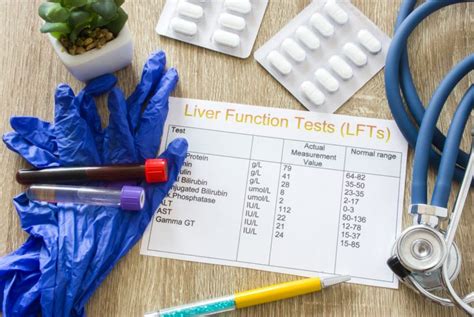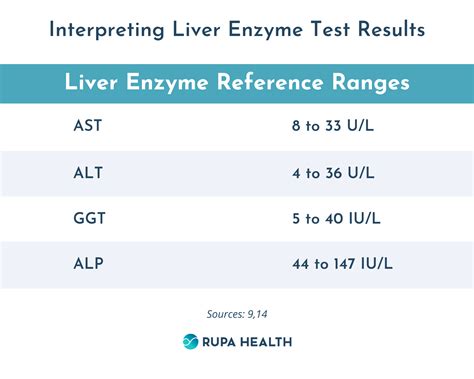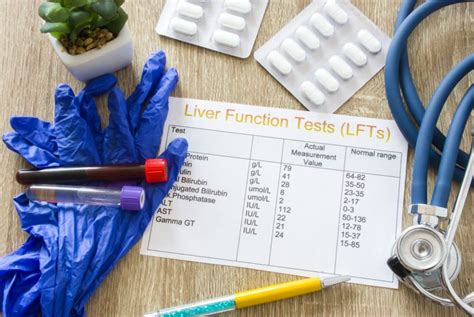Intro
Understand abnormal blood test results, including false positives and false negatives, and learn how to interpret alt blood test results with accuracy, considering factors like reference ranges and lab variations.
Elevated liver enzymes, also known as abnormal alanine transaminase (ALT) blood test results, can be a cause for concern for many individuals. The liver plays a crucial role in maintaining overall health, and abnormal liver enzyme levels can indicate a range of health issues, from mild to severe. Understanding the significance of ALT blood test results and what they mean is essential for individuals who have received abnormal test results. In this article, we will delve into the world of liver health, exploring the importance of ALT blood tests, the possible causes of abnormal results, and the steps individuals can take to address any underlying health concerns.
The liver is a vital organ responsible for filtering toxins, regulating metabolism, and producing essential proteins. Liver enzymes, such as ALT, are proteins that help the liver perform its functions. When the liver is damaged or inflamed, it can release these enzymes into the bloodstream, resulting in abnormal blood test results. ALT is one of the most common liver enzymes tested, and elevated levels can indicate liver damage or disease. The ALT blood test is a simple and non-invasive procedure that measures the level of ALT in the blood. It is often used to diagnose and monitor liver conditions, such as hepatitis, cirrhosis, and liver cancer.
Abnormal ALT blood test results can be a sign of an underlying health issue, and it is essential to understand the possible causes of these results. Some common causes of elevated ALT levels include viral hepatitis, fatty liver disease, and liver damage caused by medication or toxins. In some cases, elevated ALT levels can be a sign of a more severe condition, such as liver cancer or cirrhosis. It is crucial to consult with a healthcare professional to determine the underlying cause of abnormal ALT blood test results and to develop a plan to address any underlying health concerns.
Understanding ALT Blood Test Results

Normal ALT Levels
Normal ALT levels typically indicate that the liver is functioning properly. However, it is essential to note that normal ALT levels do not necessarily rule out liver disease or damage. Some individuals with liver disease may have normal ALT levels, while others with elevated levels may not have any underlying liver condition. It is crucial to consider other factors, such as medical history, physical examination, and other laboratory tests, when interpreting ALT blood test results.Elevated ALT Levels
Elevated ALT levels can be a sign of liver damage or disease. The severity of the elevation can provide clues about the underlying cause. For example, mildly elevated ALT levels may indicate a mild liver condition, such as fatty liver disease, while severely elevated levels may indicate a more severe condition, such as liver cancer. It is essential to consult with a healthcare professional to determine the underlying cause of elevated ALT levels and to develop a plan to address any underlying health concerns.Causes of Abnormal ALT Blood Test Results

Viral Hepatitis
Viral hepatitis is a common cause of abnormal ALT blood test results. Hepatitis A, B, and C can cause liver inflammation and damage, resulting in elevated ALT levels. Hepatitis A is typically spread through contaminated food or water, while hepatitis B and C are spread through bodily fluids. Treatment for viral hepatitis depends on the type and severity of the infection.Fatty Liver Disease
Fatty liver disease, also known as steatosis, is a common cause of abnormal ALT blood test results. Fatty liver disease occurs when fat builds up in the liver, causing inflammation and damage. The condition is often associated with obesity, diabetes, and high cholesterol. Treatment for fatty liver disease typically involves lifestyle changes, such as weight loss and exercise, and medication to reduce inflammation and fat buildup.Steps to Address Abnormal ALT Blood Test Results

Lifestyle Changes
Lifestyle changes, such as weight loss, exercise, and a healthy diet, can help reduce inflammation and fat buildup in the liver. A healthy diet should include plenty of fruits, vegetables, whole grains, and lean protein sources. Individuals should also aim to exercise regularly, such as walking or jogging, and avoid sedentary activities, such as watching TV or playing video games.Avoiding Alcohol and Toxins
Alcohol and toxins, such as acetaminophen, can cause liver damage and result in elevated ALT levels. Avoiding these substances can help reduce the risk of liver damage. Individuals should also be cautious when taking medication, as some medications can cause liver damage.Conclusion and Next Steps

What is the normal range for ALT levels?
+The normal range for ALT levels can vary depending on the laboratory and the individual's age and sex. Generally, the normal range for ALT is between 0-40 U/L.
What are the possible causes of elevated ALT levels?
+Elevated ALT levels can be caused by a range of factors, including viral hepatitis, fatty liver disease, and liver damage caused by medication or toxins.
How can I reduce the risk of liver damage and promote overall health and well-being?
+Individuals can reduce the risk of liver damage and promote overall health and well-being by making lifestyle changes, such as weight loss, exercise, and a healthy diet, avoiding alcohol and toxins, and considering medication if necessary.
We hope this article has provided you with a comprehensive understanding of abnormal ALT blood test results and the steps you can take to address any underlying health concerns. If you have any further questions or concerns, please do not hesitate to comment below or share this article with others who may find it helpful. Remember, taking care of your liver health is essential for promoting overall health and well-being. By understanding the causes of abnormal ALT blood test results and taking steps to address any underlying health concerns, you can reduce the risk of liver damage and promote a healthy and happy life.
